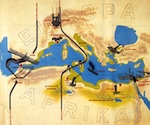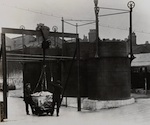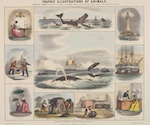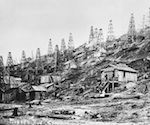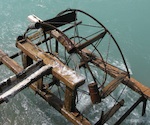Project Coordinators
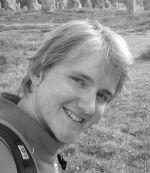
![]() Philipp Lehmann (plehmann [at] fas.harvard.edu) Philipp Lehmann is a PhD candidate in the History Department. He works on scientific ideas of climate change and desertification and their relation to projects of environmental transformation in the late nineteenth and early twentieth century. His research focuses specifically on the intellectual context of large engineering schemes to transform desert environments into arable land, such as Francois Roudaire's project of the "Sahara Sea" and Herman Sorgel's vision of Atlantropa, a geo-engineered new Euro-African continent.
Philipp Lehmann (plehmann [at] fas.harvard.edu) Philipp Lehmann is a PhD candidate in the History Department. He works on scientific ideas of climate change and desertification and their relation to projects of environmental transformation in the late nineteenth and early twentieth century. His research focuses specifically on the intellectual context of large engineering schemes to transform desert environments into arable land, such as Francois Roudaire's project of the "Sahara Sea" and Herman Sorgel's vision of Atlantropa, a geo-engineered new Euro-African continent.
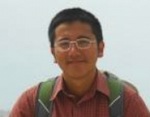
![]() Victor Seow (seow [at] fas.harvard.edu) is a graduate student in History and East Asian Languages. He specializes in the history of nineteenth- and twentieth-century China and Japan, with research interests in issues of energy, science and technology, the environment, business and labor, and state power. His dissertation, "Coal Capital: Manchurian Energy Regimes and the Industrial Modern, 1907-1957," examines the history of the fossil fuel industry in northeast China and its rise under Japanese management and expertise in the first half of the twentieth century. Through this, the project explores the role of energy and energy technologies in shaping Chinese and Japanese experiences with industrial modernity.
Victor Seow (seow [at] fas.harvard.edu) is a graduate student in History and East Asian Languages. He specializes in the history of nineteenth- and twentieth-century China and Japan, with research interests in issues of energy, science and technology, the environment, business and labor, and state power. His dissertation, "Coal Capital: Manchurian Energy Regimes and the Industrial Modern, 1907-1957," examines the history of the fossil fuel industry in northeast China and its rise under Japanese management and expertise in the first half of the twentieth century. Through this, the project explores the role of energy and energy technologies in shaping Chinese and Japanese experiences with industrial modernity.
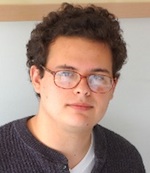
![]() Joshua Specht (jspecht [at] fas.harvard.edu) Josh's interests in environmental history include the rise of large-scale livestock farming in the 19th century United States, the commodification of animals, and urban wildlife. He is currently developing a dissertation prospectus on the consolidation of a national ranching and meat packing industry in the United States. His project will take an ecological approach, emphasizing the evolving relationships between people, animals, and the land. A focus on energy and its transformations is key to conceptualizing these interconnections.
Joshua Specht (jspecht [at] fas.harvard.edu) Josh's interests in environmental history include the rise of large-scale livestock farming in the 19th century United States, the commodification of animals, and urban wildlife. He is currently developing a dissertation prospectus on the consolidation of a national ranching and meat packing industry in the United States. His project will take an ecological approach, emphasizing the evolving relationships between people, animals, and the land. A focus on energy and its transformations is key to conceptualizing these interconnections.
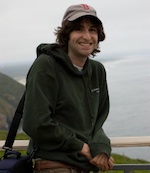
![]() Jeremy Zallen (jzallen [at] fas.harvard.edu) is a graduate student in the History Department. He works on the social and environmental histories of the eighteenth and nineteenth centuries, with particular interests in the lived experiences and politics of free and enslaved labor in North America and the Atlantic world. Jeremy is currently completing his dissertation, "American Lucifers: Makers and Masters of the Means of Light, 1750-1900," which examines the production and consumption of the means of light from the colonial period to the end of the nineteenth century. Ranging from the whale fishery to street lamps, slave-worked turpentine camps to the copper mines of Butte, the dissertation reconstructs the ground-level experiences and struggles of the living (and dying) bringers of lights—those American lucifers—and the worlds they made in the process. The result is a new history of space, energy, and labor that shows clearly the coercive, often hidden, engines of exploitation and accumulation that have driven over two centuries of social "progress" in illumination.
Jeremy Zallen (jzallen [at] fas.harvard.edu) is a graduate student in the History Department. He works on the social and environmental histories of the eighteenth and nineteenth centuries, with particular interests in the lived experiences and politics of free and enslaved labor in North America and the Atlantic world. Jeremy is currently completing his dissertation, "American Lucifers: Makers and Masters of the Means of Light, 1750-1900," which examines the production and consumption of the means of light from the colonial period to the end of the nineteenth century. Ranging from the whale fishery to street lamps, slave-worked turpentine camps to the copper mines of Butte, the dissertation reconstructs the ground-level experiences and struggles of the living (and dying) bringers of lights—those American lucifers—and the worlds they made in the process. The result is a new history of space, energy, and labor that shows clearly the coercive, often hidden, engines of exploitation and accumulation that have driven over two centuries of social "progress" in illumination.
Faculty Associates
